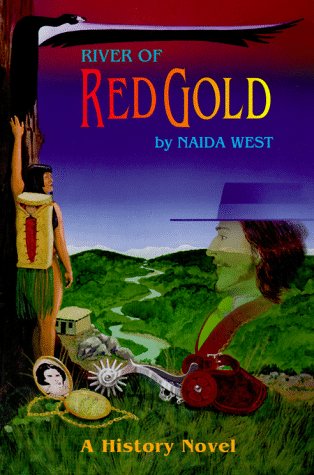River of Red Gold
In River of Red Gold, Naida West tells the story of the California Gold Rush from the point of view of Mexican land grantees, Native Americans, and the early immigrants who worked the land that is overwhelmed, in 1849, by rogues, miners and adventurers.
Pedro Valdez is the son of a Mexican lieutenant. A skilled cattle-wrangler, he hopes to earn a land grant from Mexico. Maria Howchia, his lover, is an Indio who seeks power and wisdom to understand the rude people who now live so close to her tribe. Elitha Donner survives her family’s fate and is determined to settle in California just as her father dreamed. But as the U.S. conquers the land, Pedro’s hopes for a ranch are shattered. As gold is found in the rivers, Elitha’s land is overwhelmed by squatters and destroyed by the mining process. As more and more men flood the gold fields, Maria’s people face a worse fate: genocide.
I admire Ms. West as a historical novelist. Occasionally, the novel lags in narrative drive, as Ms. West opts for a complete and thorough accounting, but her research is meticulous, and her ability to integrate it into the narrative is outstanding. A warning to the reader: River of Red Gold is an unrelentingly grim story. Indeed, it could not be otherwise.










